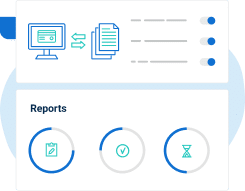Updated: November 14, 2022.
Many people think that just by attending a lead auditor course, they can become lead auditor. Well, this is not entirely true.
This article will explain the role of the ISO 27001 ISMS lead auditor, what the job entails, and the roles of other auditors. You will also learn about the ISO 27001 lead auditor certification requirements, how to become an ISO 27001 lead auditor, and the steps you need to take if you want to work as an auditor for a certification body.
- Obtain lead auditor certificate
- Gain necessary experience
- Find a certification body
- Go through training
- Gain audit experience
ISO 27001 lead auditor certification process
Before you can earn an ISO 27001 lead auditor certification, you must attend the appropriate training course. Lead auditor training is based on ISO 19011:2018 concepts, terminology, and guidelines. These concepts include:
- How to plan audits
- Understanding audit team responsibilities and selecting the audit team
- Communicating during the audit
- Initiating the audit and conducting opening meetings
- Conducting on-site activities
- Identifying audit findings and reporting results
- Preparing and conducting closing meetings
The ISO 27001 lead auditor program covers topics of ISO 27001 in detail, teaching attendees how to apply auditing techniques according to ISO 27001 and controls given in Annex A. Along with lectures, there are also related exercises, including roleplaying. Finally, to complete the course successfully, you have to pass the exam.
Once you’ve passed the exam and received your certificate, it still doesn’t mean that you can go and conduct audits. ISO 27001 lead auditor certification is a starting point for working as an auditor for certification bodies providing certification audits.
If you are not interested in working for a certification body, having an ISO 27001 auditor certification is still very useful for consultants and/or for internal auditors to prove your competence to your potential clients or your employer.
Steps for becoming the ISO 27001 lead auditor
If you do want to become a lead auditor, here is what ISO 27006 (the standard that defines the requirements for certification bodies) requires:
1) Obtain lead auditor certificate – To obtain this certificate, you need to attend the ISO 27001 lead auditor course and pass the exam. The course lasts five days, and on the fifth day you need to pass the written exam. Therefore, you need to invest considerable effort, not only by studying for the exam but also by attending the full five days of the course. If you miss a single day, you will not be permitted to take the exam.
2) Gain necessary experience – You need to have at least four years of experience in information technology, of which at least two years must be in a job related to information security.
3) Find a certification body – You need to find a certification body that needs an ISO 27001 certification auditor — that may prove to be a difficult task, since most of the certification bodies already have their auditors.
4) Go through training – When you find a certification body who is interested, this doesn’t mean you’ll start auditing tomorrow — ISO 27006 requires you to go through a trainee program (or similar), during which you will attend real certification audits (done by more experienced colleagues) where you will learn how to perform such audits. Usually, this trainee period lasts 20 audit days, after which you’ll be entitled to perform ISMS audits as part of the audit team.
5) Gain audit experience – To become the ISO 27001 lead auditor, i.e., to lead a team of auditors performing an ISO 27001 audit, you need to have experience in at least three complete ISMS audits.
What is the role of the ISO 27001 lead auditor?
When an organization submits its Information Security Management System (ISMS) for certification against the ISO 27001 standard, the certification body will send a team of auditors to assess the ISMS and determine whether or not it meets the requirements for certification. The lead auditor manages this team.
What does an ISO 27001 lead auditor do during an audit?
Like the rest of the audit team, the lead auditor will work to assess the ISMS for certification. But unlike the rest of the team, the lead auditor holds additional responsibilities that are crucial to an effective certification audit. These responsibilities typically include:
- Planning the audit
- Assembling the audit team
- Organizing meetings
- Assigning tasks to other team members
- Making final determinations on any non-conformances
What are the different auditor roles for ISO 27001?
As mentioned, a certification auditor evaluates a company’s ISMS against ISO 27001 to verify that it meets the requirements and is eligible for certification.
But even after an ISMS is certified, the management system must be assessed at regular intervals by an internal auditor. An internal auditor can be an employee of the company, or an outside expert. Their role is to review all of the documentation related to the ISMS, and then assess the ISMS through employee interviews and observation of the system in action. Any non-conformities will be summarized in an audit report, which is presented to top management. The goals of the internal audit are:
- Identifying any nonconformities that could harm the business
- Raising employee awareness and participation in the ISMS
- Improving the ISMS on an ongoing basis
Are you ready to become an ISO 27001 lead auditor?
After you finish all the steps outlined above, and once you meet the ISO 27001 lead auditor requirements, you will be able to perform the ISMS audits as the team leader.
Click here to join a free ISO 27001 Lead Auditor Online Course where you can learn everything about the role of Lead Auditor.

 Dejan Kosutic
Dejan Kosutic 



